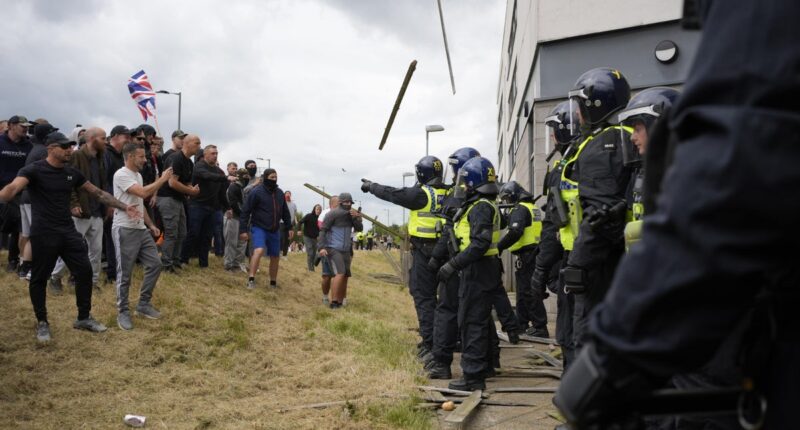
Fraser Nelson, the former editor of The Spectator, the Conservative weekly, is having a remarkable afterlife as a great defender of the Labour government. He has gone head-to-head with Nigel Farage over the Reform leader’s claim that we are living in “lawless Britain”.
There is less crime in Britain today than there has been for decades, Nelson pointed out at one of Farage’s media conferences this week.
This crime reduction is nothing to do with people not bothering to report crime to the police any more, because the figures come from the Crime Survey for England and Wales, a large survey of a representative sample of the population that asks people if they have been the victim of a crime in the previous 12 months. The number of crimes has fallen by four-fifths since 1995.
Farage waved the Crime Survey aside, saying it was “discredited” because it does not include shoplifting. It doesn’t, because it asks people about crimes of which they have personally been the victim, and shoplifting has indeed increased. But that does not mean the Crime Survey is discredited. On the contrary, it is the best and most reliable evidence, and it is especially useful for measuring trends over time, because it is not affected by changes in the way police record crime.
What did Farage say to that? “We all know that crime has risen significantly over the course of the last few years.” A big welcome back, please, to that dread phrase, “we all know”. For years, I would point out that four public inquiries had found that Tony Blair told the truth about Iraq, only to be told that “we all know” he didn’t.
As Nelson comments: “This is the politics of perception.” As he points out in an excellent article in The Times today, it is the same with road safety, air pollution, sewage, and living standards. “We all know” they are getting worse, when in fact they are getting better.
So it does not matter to most people what the Crime Survey says. Most people believe that crime is rising, and the numbers who believe that have not changed over the years that crime has been falling. People are influenced by reports of terrible things happening to other people, and misremember their own experience. Anything more than five or 10 years ago was a golden age when there was some decent music in the charts and Mars bars weren’t behind perspex screens.
Why, though, has what “we all know” become so much worse in the past year? Probably because some highly visible crimes have increased: shoplifting, phone thefts and graffiti. These are crimes that make people feel threatened by disorder, even as more of us than ever report feeling safe walking alone in their local area at night.
What is corrosive is the perception – “we all know” – that the authorities are not securely in control. Behind that perception lies the reality of asylum-seeker hotels and a government that is powerless to stop the boats. What has changed since the election is that Farage is more active, at the head of a social-media movement and a TV channel, GB News, dedicated to portraying the country as a hellhole.
The intensity of this campaign to spread fear and insecurity seems to have reached a critical mass that is dangerous to Keir Starmer. He cannot fight it with facts, or not only with facts, because the answer will always be that “we all know” that the facts are wrong.
As Ian Leslie, the advertising executive turned social commentator, says, “Instead of asking, ‘Why are people angry?’ we should ask, ‘What are we missing?’”
What the government needs is to take visible and forceful action on the things that people care about, the shoplifting, phone snatching and graffiti, but above all on asylum hotels and stopping the boats.
So far, Starmer has tried to do all these things, but limply. There have been roundtables at No 10 with the police and representatives of the retail industry and phone companies. Even these feeble initiatives have been undermined by people in authority doing foolish things, such as the police in Wales telling off a shopkeeper for calling thieves “scumbags” and Andy Lord, the London Underground boss, who accused citizen graffiti-removers of defacing trains themselves so that they could pose as heroes for cleaning them up.
Most importantly, Starmer now has a treaty with France to return some of the cross-Channel migrants, but it will take a long time to build up to returning all or nearly all those who arrive, at which point the crossings would stop – and it is not clear that the French are in it for the long haul.
One thing that Tony Blair understood, as he faced spikes of street crime, anti-social behaviour and asylum-seeker numbers, was the importance of “grip”. It may sound like annoying spin-speak, but it was critical to communicating that he understood how people felt and he was doing something about it.
Starmer should be grateful to Fraser Nelson, formerly of The Spectator, for pointing out that we are safer, richer and healthier than ever before – but if the perception is that we are not, the government has to get a grip on what “we all know”.








